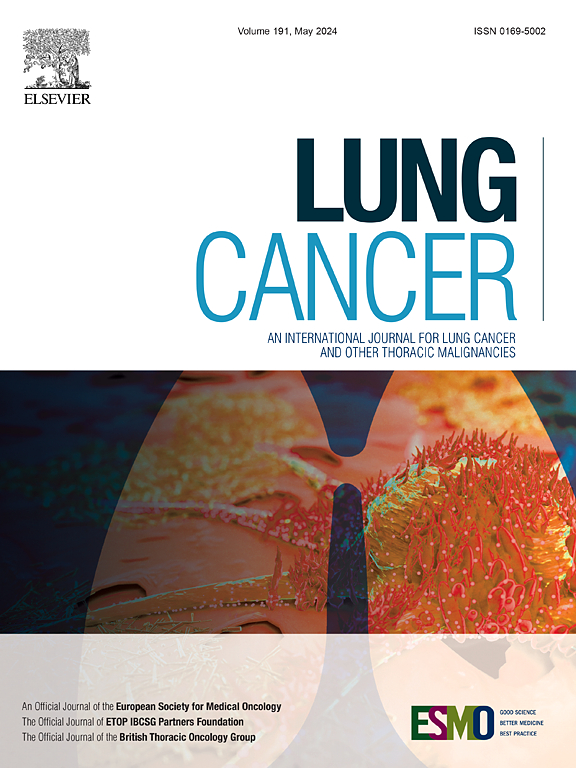Immunotherapy in advanced non-small cell lung cancer: What to do for the ‘Invisible’ patients after IPSOS trial results?
IF 4.5
2区 医学
Q1 ONCOLOGY
引用次数: 0
Abstract
Background
Immune checkpoint inhibitors (ICIs) are currently included in the standard of care of the first-line treatment of advanced/metastatic non-small cell lung cancer (NSCLC). However, a relevant group of clinically unfit patients, including poor Performance Status, Elderly, and those with relevant comorbidities, are not represented in most pivotal clinical trials.
Methods
An expert panel meeting commentary was virtually held to point out the key issues in treating such ‘invisible’ patients and to review the available evidence.
Results
Overall, clinically unfit patients represent up to 50% of patients with diagnosis of advanced/metastatic NSCLC. Few dedicated studies with immunotherapy were conducted in this population. Among them, the IPSOS trial finally answers the issue of first line immunotherapy in platinum-unfit patients with advanced NSCLC, demonstrating atezolizumab improved OS and good tolerability compared to monochemotherapy.
Conclusions
Atezolizumab monotherapy can be considered a valid first-line treatment in patients with advanced NSCLC who are unfit to receive platinum-based chemotherapy, including elderly, those with poor PS and/or comorbidities.
免疫治疗晚期非小细胞肺癌:IPSOS试验结果后,对“隐形”患者该做些什么?
免疫检查点抑制剂(ICIs)目前被纳入晚期/转移性非小细胞肺癌(NSCLC)一线治疗的标准治疗方案。然而,一组相关的临床不适合的患者,包括表现不佳、老年人和有相关合并症的患者,在大多数关键的临床试验中都没有出现。方法召开专家评议会议,指出治疗此类“隐形”患者的关键问题,并对现有证据进行审查。总体而言,临床上不适合的患者占晚期/转移性NSCLC患者的50%。很少有专门的免疫治疗研究在这一人群中进行。其中,IPSOS试验最终回答了铂不适合晚期NSCLC患者的一线免疫治疗问题,证明了与单药化疗相比,atezolizumab改善了OS和良好的耐受性。结论satezolizumab单药治疗可被认为是不适合接受铂类化疗的晚期NSCLC患者的有效一线治疗,包括老年人、不良PS和/或合并症患者。
本文章由计算机程序翻译,如有差异,请以英文原文为准。
求助全文
约1分钟内获得全文
求助全文
来源期刊

Lung Cancer
医学-呼吸系统
CiteScore
9.40
自引率
3.80%
发文量
407
审稿时长
25 days
期刊介绍:
Lung Cancer is an international publication covering the clinical, translational and basic science of malignancies of the lung and chest region.Original research articles, early reports, review articles, editorials and correspondence covering the prevention, epidemiology and etiology, basic biology, pathology, clinical assessment, surgery, chemotherapy, radiotherapy, combined treatment modalities, other treatment modalities and outcomes of lung cancer are welcome.
 求助内容:
求助内容: 应助结果提醒方式:
应助结果提醒方式:


